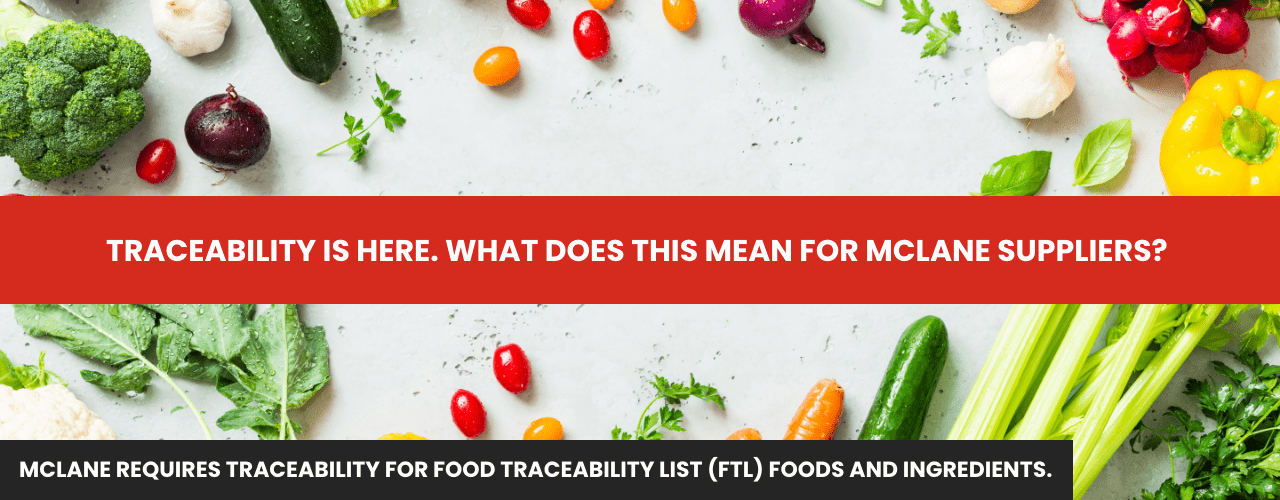In 2024, McLane announced the requirements of its food traceability program, requiring traceability data to be shared for all products included on the FDA’s Food Traceability List (FTL) and for products that use FTL foods as an ingredient.
Other industry giants – including Kroger and Sysco – have also made public commitments to require traceability data from suppliers. ReposiTrak can help you to take your traceability data to any of your retail, wholesale or restaurant customers to meet their unique requirements.
The goal of traceability, according to the FDA, is the “faster identification and rapid removal of potentially contaminated food from the market, resulting in fewer foodborne illnesses and/or death.” As a result, every food supplier, retailer, wholesaler and restaurant in the country is now part of the largest data collaboration project in the history.

